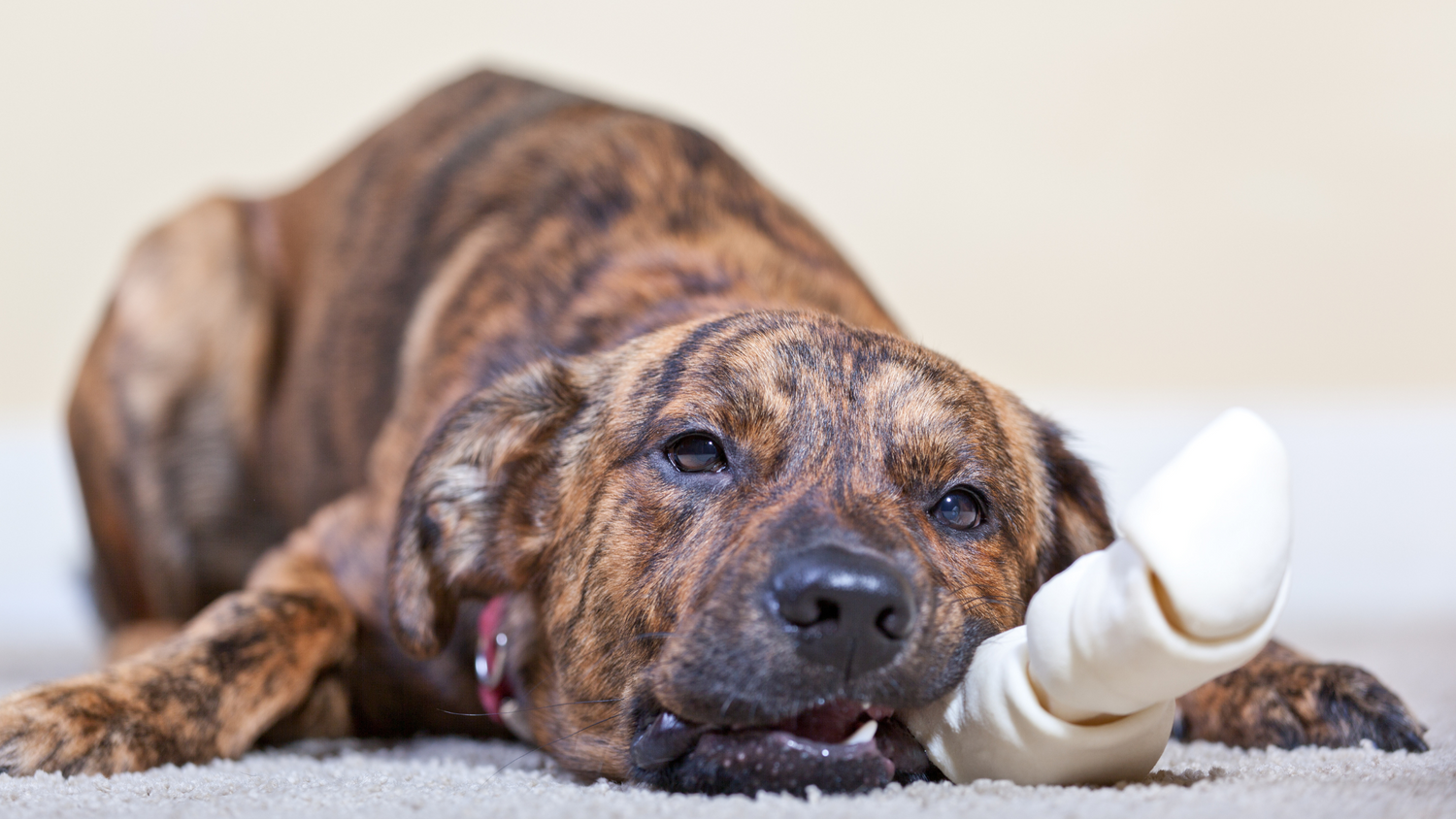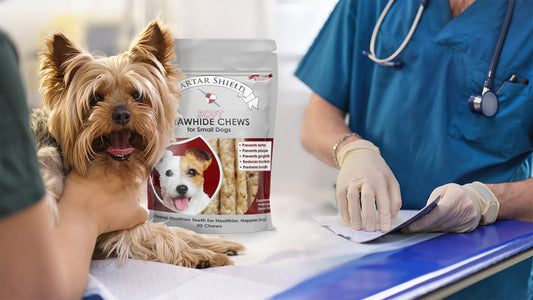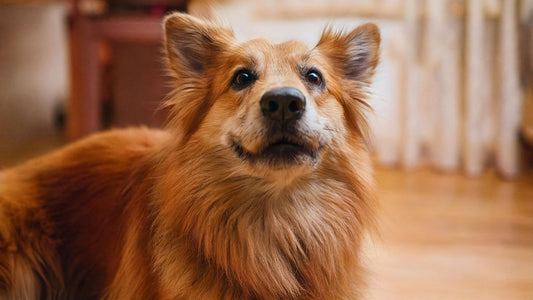It’s no secret that dogs love rawhide chews. But is rawhide bad for dogs?
Dogs have a natural need to chew. For puppies, chewing is a way to explore the world around them, and it also provides relief during the painful teething process. Adult dogs chew as a form of entertainment and to combat boredom, restlessness, and anxiety. As pet parents, we want to encourage healthy chewing in our dogs, knowing that it keeps dogs occupied and contributes to their overall wellbeing, while cleaning their teeth and helping to keep their jaws strong. And, when it comes to tasty and long-lasting chews for dogs, rawhide bones are a longtime staple in many households and pet stores.
But many rawhide products have developed a bad rap—and for good reason! On top of quality concerns and inconsistencies among some brands, traditional rawhide can pose a serious danger to dogs’ digestive tracts. Let’s look at what rawhide is, and why you may want to think twice about feeding your dog traditional rawhide chews.
What is rawhide?
Rawhide is made from dried animal skins, usually from cows. When rawhide is made, the inner layer of skin is separated from the outer layer (which is often used for leather goods) before being processed and cleaned with hydrogen peroxide or other safe chemicals, and then cut and pressed into chews and treats of various shapes and sizes. Flavoring and coloring agents are often added, too.
What makes some rawhide dangerous?
Traditionally, rawhide chews have been designed to be long-lasting treats that slowly break down into tiny pieces over time. However, many dogs are able to break off large chunks of rawhide, which can be a choking hazard or can cause a dangerous blockage in the digestive tract.
Traditional rawhide is not easily digestible, so if a dog swallows a large piece of it whole, it won’t break down in the body. What’s more, rawhide tends to swell. Pieces of rawhide stuck in the esophagus or elsewhere in the digestive tract can lead to a life-threatening obstruction, requiring surgery to be removed.
Besides the risk of obstruction, dog owners should also be aware of chemicals used to clean, preserve, and sometimes bleach rawhide chews. Much of the rawhide products sold in pet stores are made overseas in countries where there is very little regulation regarding the way rawhide is processed and the chemicals used. As a result, some rawhide bones and treats may contain toxic chemicals.
Should I avoid rawhide altogether?
Every dog is different, and just how dangerous rawhide is comes down to your dog’s individual chewing style. Dogs that are strong or aggressive chewers may be more likely to swallow large pieces of rawhide whole, making rawhide chews especially unsuitable for these dogs. Young puppies and senior dogs shouldn't chew on rawhide either, as it can be too hard for their teeth. If your dog is a gentler chewer and you do choose to give your dog rawhide, you can lower the risks of choking and obstruction by selecting the right size chew for your dog, monitoring your dog at all times when chewing on rawhide, and taking the rawhide away when it gets too small or when pieces break off.
Also, keep in mind that the quality of rawhide chews can vary immensely, so the type of chew matters. If you do buy rawhide, spring for quality products that were made in the United States and thus have been subject to known quality control standards. You may also want to discuss with your veterinarian the risks and benefits of rawhide dog chews, as well as rawhide alternatives.
A Safer Solution: Digestible and extruded rawhide
If you’ve decided to reach for an alternative to rawhide the next time you’re buying dog treats, you’re not alone. Many pet parents turn to durable chew toys, bully sticks, hardened cheese chews, or even whole raw carrots to help satisfy their dogs’ urge to chew.
Safer Vet Approved VOHC Rawhide for Dogs
But what about a digestible rawhide chew? Tartar Shield Soft Rawhide Chews are made from extruded rawhide that’s been chopped and minced into tiny pieces, and then baked into a crunchy treat. Designed to “give” when bitten into, these rawhide treats are gentler on teeth and easier for dogs to digest, and therefore safer— any pieces swallowed will never swell and can be broken down by digestive juices. Tartar Shield Soft Rawhide Chews come in multiple sizes for large dogs and small dogs, making it easy to choose the right rawhide for your pet. Our Soft Rawhide Chews are the only extruded rawhide dental chew to be awarded the Veterinary Oral Health Council (VOHC) seal of approval.
What’s more, Tartar Shield Soft Rawhide Chews are made in the U.S. with only 4 simple ingredients, including 100% American beef hide—so you don’t need to worry about toxic chemicals that sometimes lurk in traditional rawhide. And, Tartar Shield Soft Rawhide Chews are clinically proven to clean teeth, freshen breath, and reduce plaque and tartar buildup by more than 54%!
While dogs may adore rawhide treats, traditional rawhide chews come with significant risks. However, a dog's desire and need to chew should not be ignored. Selecting safer, digestible alternatives such as Tartar Shield Soft Rawhide Chews is a vet-recommended solution. You and your furry friend can enjoy all the benefits of happy chewing sessions without the harrowing worries accompanying traditional rawhides. Made in the USA following the most rigorous quality standards and awarded the prestigious VOHC seal of approval, these chews present an efficient way to promote dental health, proving that safer options benefit your pet's long-term health. But remember—no matter what you opt for—nothing substitutes the value of permanent supervision while your pet is enjoying their chew!



